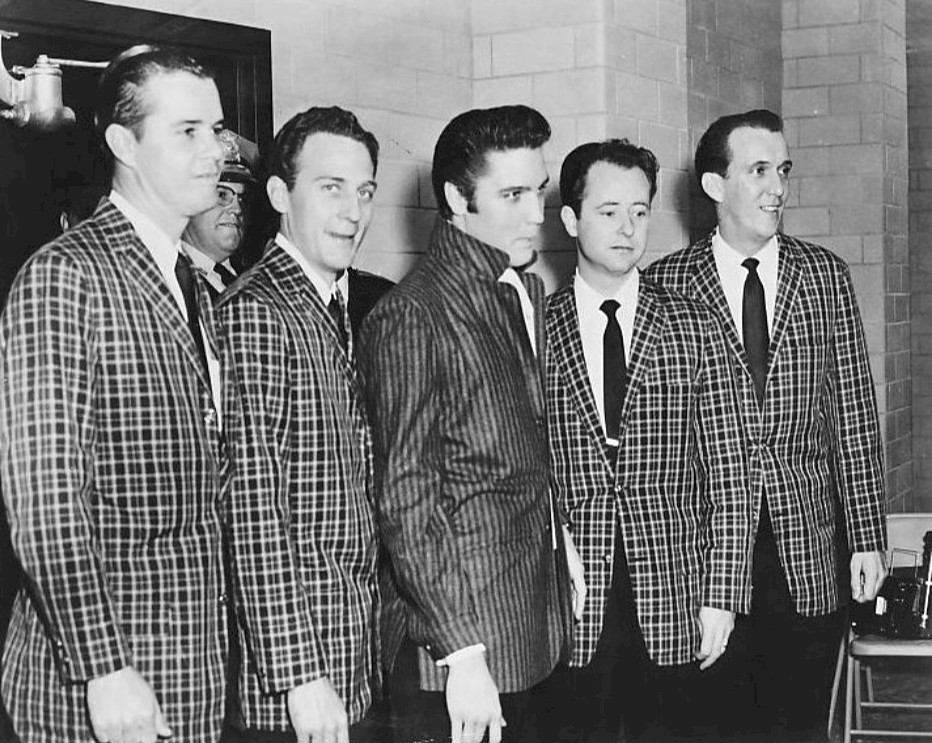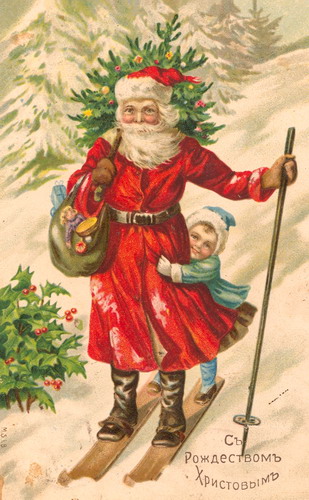A feast of holidays and carols
- This article first appeared a year ago in The Signpost. A couple of the staff here liked it enough to ask me to resubmit it this year. I'm happy to do it, I just really love Christmas carols. Of course I had to make a few changes, and I'll make more next year if I get the chance again. Please post some of your own favorite carols in the section for comments, along with any holiday wishes or Christmas cards you like. I'll try to include some of these next year. Happy holidays! – S

I love Christmas carols, especially the old ones. Charles Dickens's story A Christmas Carol is not that old — first published in 1843 — but is written in the form of a "Christmas carol in prose", according to the title page. Its chapters are even called staves. In the first stave, a passing caroler sings a small snippet of an old carol to Scrooge. Do you know the Christmas carol sung in A Christmas Carol?
"God Rest Ye Merry, Gentlemen" goes back to the 1650s, but songs have been associated with mid-winter holidays for over 2,000 years. For example, the Roman holiday Saturnalia was associated with song, as well as wine and political incorrectness — though it should not be confused with Bacchanalia. There's even a modern Saturnalia song, sung in Latin, titled "Io, Saturnalia" (In English: "Yo, Saturnalia") which might be better to skip.
Carols are not necessarily religious, but they are almost always happy music you can dance to. "O Tannenbaum" means "Oh, fir tree" in German but is usually translated into English as "Oh, Christmas Tree". Other than the word "Christmas", the song has little to do with religion. It just praises the fir tree's "faithfulness" — its ability to stay green all Winter. In German, in French, and in English.
Religious carols
My favorite religious carols include:
"Good King Wenceslas" — celebrates the day after Christmas, the Feast of Stephen, and emphasizes the importance of charity (and gift-giving in general).
"It Came Upon the Midnight Clear" — a song that has lyrics from a poem of the same name, and is a very intellectual expression of the author's personal interpretation of the meaning of Christmas. It may mark his joy at the announcement of peace ending the Mexican–American War.
"O Holy Night" — sends a similar message.

Ramsey Lewis gives a jazz version of "We Three Kings".
To fully appreciate "O come all ye faithful", you need to hear it in a large, packed church with a powerful organ belting it out on Christmas Eve. The original Latin version, Adeste Fideles, can be even more powerful. Strangely, though I only know a few words of Latin, I always think of it as Venite Adoremus from the words in the chorus that translate to "Oh come let us adore (him)".
The explanation is the quirky, sprightly carol "The Snow Lay On the Ground", which also uses the words venite adoremus. The lyrics are attributed to a 19th-century Italian folk song, but three quarters of the time you just sing venite adoremus.
Another folk song, an African-American spiritual, "Go Tell It on the Mountain", is an expression of pure joy. It was first mentioned in 1901, and published in 1909.
There aren't many African-American folk songs that have become classic Christmas carols, but there is the ultimate "Christmas Song" sung and played by some of the best musicians on this page, including by the composer. [1]
And another great December song.
Diverse points of view
Modern Christmas carols and songs express many of the same themes as the earlier carols, adapted to the current state of the world. But I'm not going to link to "All I Want for Christmas is You" — you know where to find it, and you know that you have heard it enough already this year.
There are also many people who live in different circumstances in other countries, who celebrate different winter holidays, and worship in different faiths. Nobody should be left out at this time of year. We are sorry that there is not enough time to cover everybody's circumstances.
"Silver Bells" brings great memories of "Christmastime in the city". But I also have mixed feelings on its message. Is it meant to honor the Salvation Army? Or is it just an advertisement for the modern commercialized holiday that seems to start in October? Or maybe it is just a great song, in a bad movie, starring an even worse comedian?
There is no doubt that Elvis Presley's "Blue Christmas" is a great song. But sometimes I wonder if it has anything to do with Christmas.
José Feliciano's song [2] "Feliz Navidad" causes no such mixed feelings. A little bit of repetition never hurt a Christmas song.
Russia and Ukraine both have long traditions of celebrating Christmas and New Year's Day. And they share some of them.
В лесу родилась ёлочка ("In the woods is born a fir tree") is a Russian children's New Year's song. It mirrors Oh, Christmas Tree but includes a cute little bunny, an angry wolf, and most kiddy videos include Father Frost (a Slavic Santa Claus).
The music to this little Christmas dance was written by a gay Russian composer whose grandfather was born in Ukraine.
Do not be fooled by a bit of chaos at the start to this video of Ukrainian carolers.
These shared traditions only make the current war more tragic.
There are other tragedies happening right now that involve different religions that share, in part, a common heritage.
You might think it would be difficult finding a Jewish Christmas carol, but a song often called "The best selling Christmas song of all time" was written by Irving Berlin, a Jew.
Hanukkah songs include "The Dreidel Song", "8 Days (Of Hanukkah)" by Sharon Jones & the Dap-Kings [3], and "Hanukkah Rocks" [4] by The LeeVees (the last two links are to NPR's Tiny Desk Concert).
You might think there are no Muslim Christmas songs, and perhaps you are right. But Muslims are allowed to borrow the Christmas carols they like and even compose their own, just like anybody else. This is the view put forward in these two thought-provoking videos.
We all share part of our common human heritage. We all share in our common human tragedy.














Discuss this story